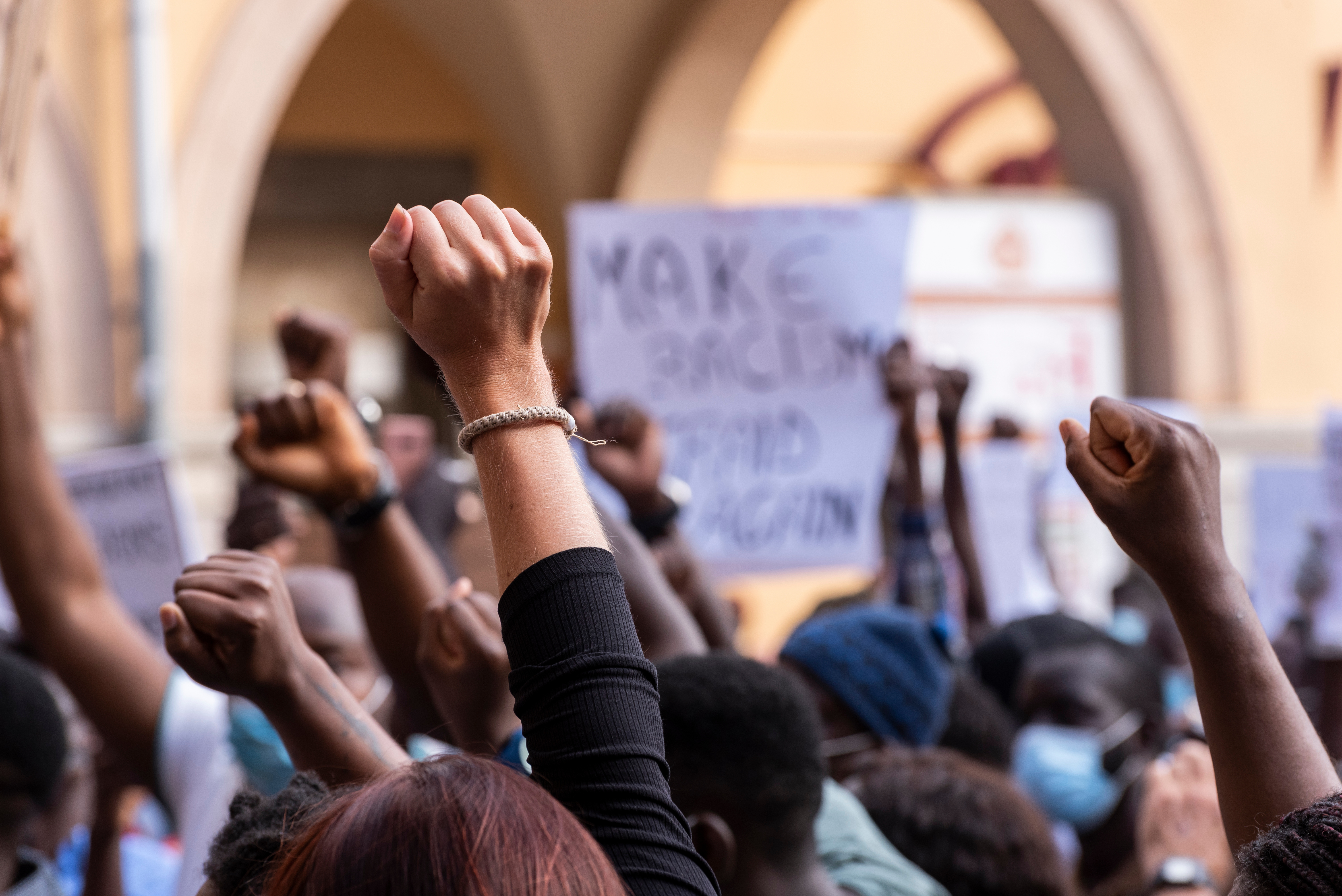Why Protesting Matters Now More Than Ever
5 min

Peaceful protest is an anchor of democracy that Americans have long turned to in trying times, but what happens when even elected officials are punished for speaking out?
In a widely reported incident, U.S. Senator Alex Padilla was forcibly brought to the ground and handcuffed at Homeland Security Secretary Kristi Noem’s press conference. Padilla is native to Los Angeles, where residents saw a deployment of the National Guard, I.C.E. raids, and rampant detainments. He was there simply to ask questions of this administration, demand answers for Californians, and exercise a Constitutional right. He broke no laws.
The message was unmistakable. Any dissent, even from a high ranking elected official, is unwelcome and will be aggressively shut down. Padilla’s experience is a chilling reminder that protest isn’t just symbolic demonstration, it’s necessary to the continuation of our democracy.
“No one is coming to save us but us,” Padilla warned after the incident. “And we know that the cameras are not in every corner of the country. But if this administration is this afraid of just one senator with a question, colleagues, imagine what the voices of tens of millions of Americans peacefully protesting can do.”
Peaceful protest is an anchor of democracy that Americans have long turned to in trying times, and it’s only growing more essential in Trump’s second term. As CA Gov. Gavin Newsom put it, “If they can handcuff a U.S. Senator for asking a question, imagine what they will do to you.”
That’s why protest is so important.
If the outcomes of protesting (desired or real) aren’t clear to you, let’s first lay out a few of the concrete benchmarks we can achieve through protest:
Force politicians to take clear stances on issues
Shift priorities of voters and grow public support (think policing becoming a defining issue in 2020 following the Black Lives Matter protests)
Shape narrative and messaging around an issue (Handmaid’s Tale costuming, anyone?)
Gain media coverage on an issue
Solidify social networks around a common cause
In some cases, bring unjust events to a halt in real time (think evictions or environmental destruction)
Bring about major social and political changes down the line
And finally, demonstrate that we haven’t lost our collective voice. We are not alone and that we will not be silent – courage is contagious.
When the people in power try to rewrite the truth, or when folks at home look away, protest refuses their dismissal. It challenges injustice and shortens the timeframe on public ignorance. And yet, it’s not just PR work – it’s an interwoven piece of our political processes. If you’re working on a campaign right now, you need to treat it that way.
Our reality today, whether we like it or not, is that silence in an uproar sends a message in itself.
If you’re a candidate weighing how protests will play into your campaign, know that if your voters care enough to get out on the streets, they’ll likely notice your absence and call it out. Or worse, your opponent could beat you to joining them.
Not every campaign will be deeply involved in protests, but every candidate should be following them to see what voters demand on the issues they stand on. If your platform is racial and immigrant justice, for example, your actions need to be visibly in alignment.
If you’re an individual, don’t underestimate the impact of your voice. From our own experience, all it takes is one person stepping up to protest to embolden many more to follow.
What matters is that your protesting presence is honest, unapologetic, and true to your values. Don’t protest for anything that you wouldn’t follow up with hard work towards lasting change. It shouldn’t be a singular act, but a step in the right direction.

Ready To Protest?
Whether you’re a first-time or seasoned protestor, we’ve put together a curated, vetted, and accessible 5-minute mini course to cover the essentials: from knowing your rights to how to protest safely, strategically, and effectively. If you’re ready to go a step further, check out our exploratory course “So You Think You Want To Run” or our website for more leadership and campaign resources.
Be loud and stay safe.
Want to keep learning? Check out the following trainings to launch your campaign:


